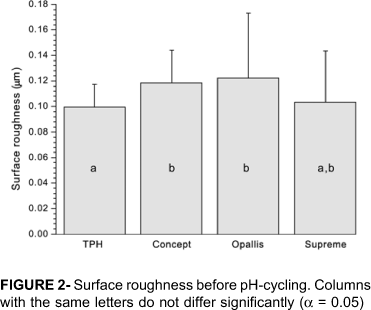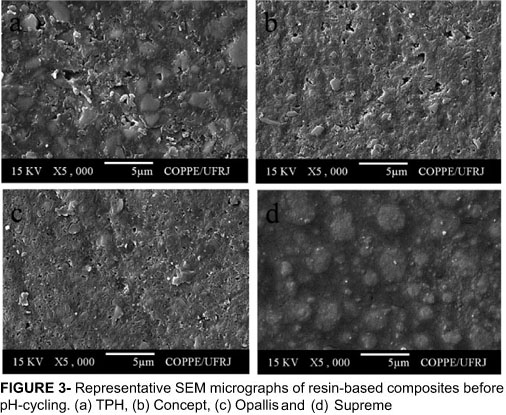This study evaluated the effects of acidic medicines (Dimetapp® and Claritin®), under pH-cycling conditions, on the surface degradation of four composite resins (microhybrid: TPH, Concept, Opallis and Nanofilled: Supreme). Thirty disc-shaped specimens (Ø = 5.0 mm / thickness = 2.0 mm) of each composite were randomly assigned to 3 groups (n = 10): a control and two experimental groups, according to the acidic medicines evaluated. The specimens were finished and polished with aluminum oxide discs, and the surface roughness was measured by using a profilometer. After the specimens were submitted to a pH-cycling regimen and immersion in acidic medicines for 12 days, the surface roughness was measured again. Two specimens for each material and group were analyzed by scanning electron microscopy (SEM) before and after pH-cycling. Data were analyzed by the Student's-t test, ANOVA, Duncan's multiple range test and paired t-test (α=0.05). Significant increase in roughness was found only for TPH in the control group and TPH and Supreme immersed in Claritin® (p<0.05). SEM analyses showed that the 4 composite resins underwent erosion and surface degradation after being subjected to the experimental conditions. In conclusion, although the roughness was slightly affected, the pH-cycling and acidic medicines caused surface degradation of the composite resins evaluated. Titratable acidity seemed to play a more crucial role on surface degradation of composite resins than pH.
Composite resins; Surface degradation; pH-cycling; Acidic medicines; Microscopy; Electron; Scanning












